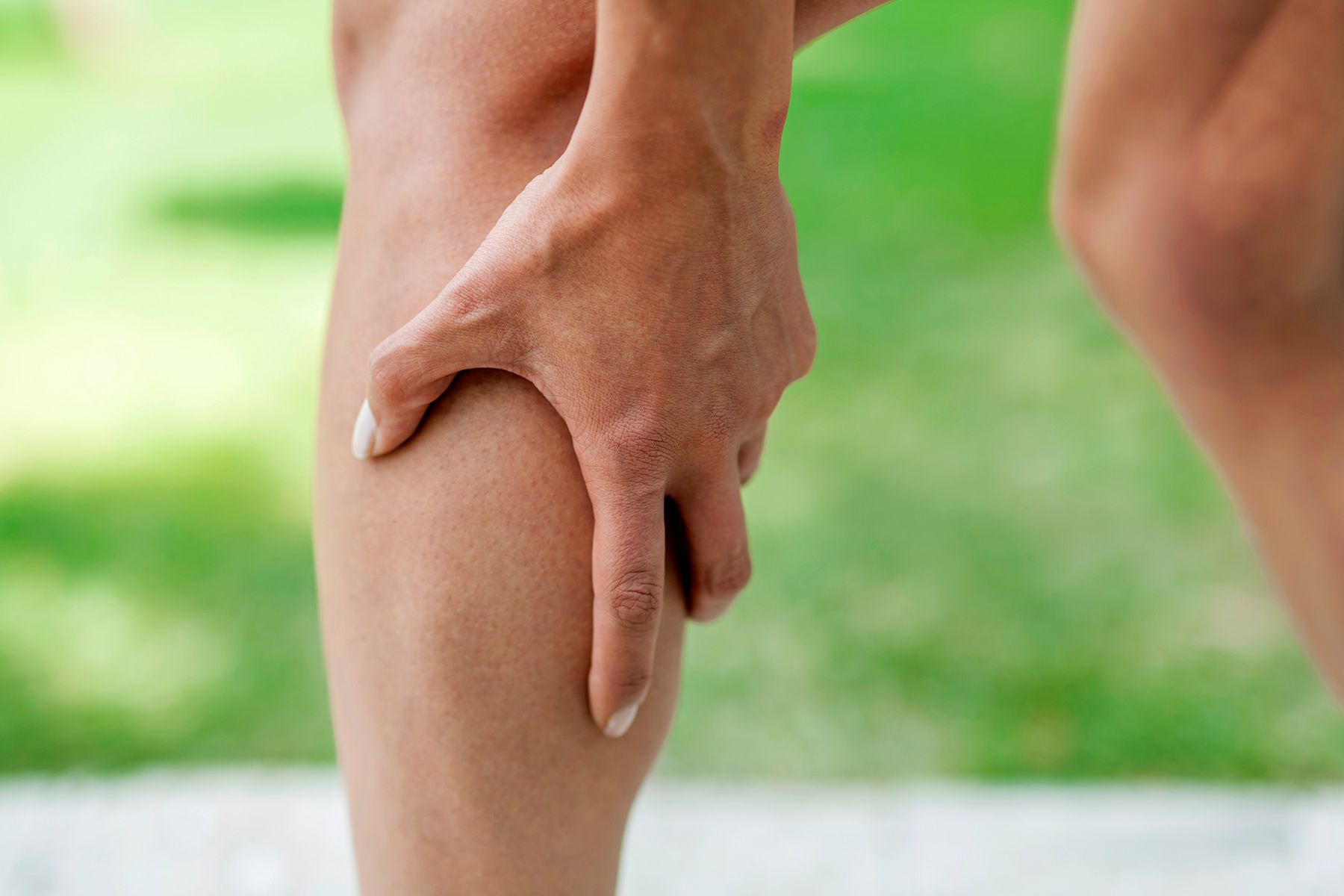
Nighttime leg cramps — those sudden, tight, and painful muscle contractions that wake you up from sleep — are a common issue that affects millions of people worldwide. Although they are usually harmless, they can disrupt rest and cause lingering soreness. Understanding what causes them and how to prevent them can make a big difference in your quality of sleep and daily comfort.
According to Mayo Clinic and Healthline, most nighttime cramps affect the calf muscles, though they can also occur in the feet or thighs. These cramps can last anywhere from a few seconds to several minutes, leaving the muscles tender even after the spasm ends.
While the exact cause is not always known, several well-documented factors are linked to night cramps. Let’s explore the most common causes and evidence-based ways to prevent or relieve them.
1. Dehydration
One of the most frequent causes of nighttime leg cramps is dehydration. When the body loses too much fluid, electrolyte levels such as sodium, potassium, and magnesium become imbalanced.
Electrolytes are essential for normal muscle function — and when they are out of balance, muscles can contract involuntarily, leading to cramps.
How to fix it:
Stay well-hydrated throughout the day. The U.S. National Academies of Sciences, Engineering, and Medicine recommends about 2.7 liters (91 ounces) of fluids per day for women and 3.7 liters (125 ounces) for men, including water, tea, and other beverages.
If you exercise or live in a hot climate, you may need more fluids to replace what’s lost through sweat.

2. Mineral Deficiencies
Deficiencies in key minerals — especially magnesium, potassium, and calcium — are another common cause of muscle cramps, according to Cleveland Clinic.
These nutrients help regulate muscle contractions, nerve signals, and blood flow. Low levels can make muscles more likely to spasm.
How to fix it:
Incorporate mineral-rich foods into your diet:
-
Magnesium: spinach, almonds, avocados, whole grains
-
Potassium: bananas, oranges, sweet potatoes, and beans
-
Calcium: dairy products, leafy greens, fortified plant milks
If deficiencies persist, your doctor may recommend supplements after confirming your levels through blood tests.

3. Overexertion and Muscle Fatigue
While exercise is essential for overall health, overtraining or performing intense physical activity without proper recovery can overwork your muscles. Fatigued muscles are more prone to cramping, especially at night when they try to relax.
How to fix it:
Warm up before workouts and cool down afterward with gentle stretching. Gradually increase the intensity of your exercise routine rather than making sudden jumps in duration or difficulty.
Massage, hydration, and rest days between workouts can also help muscles recover and reduce the risk of cramps.
4. Sedentary Lifestyle
A lack of movement during the day can also trigger cramps. When you sit for long periods — especially with your legs bent or crossed — blood flow to your muscles decreases, making them more susceptible to nighttime spasms.
How to fix it:
If you work at a desk, make it a habit to stand up, walk, or stretch your legs every hour. Simple calf stretches or ankle rolls during breaks can keep your muscles flexible and improve circulation.

5. Poor Posture and Sitting Position
Sitting or standing in awkward positions for extended periods can strain your leg muscles and nerves. Over time, this can lead to tightness that contributes to cramping at night.
How to fix it:
Maintain good posture — keep your feet flat on the ground, your knees at a 90-degree angle, and your back supported. Adjust your workstation to ensure your chair, desk, and computer height promote ergonomic alignment.
6. Nerve Compression
Nerve-related issues, such as sciatica or spinal nerve compression, can also cause cramping or pain in the legs. According to Mayo Clinic, conditions like herniated discs or spinal stenosis may irritate or compress nerves that control muscle movement.
How to fix it:
If you suspect nerve-related cramps — especially if they occur alongside numbness, tingling, or weakness — consult a healthcare professional. Physical therapy, stretching, and posture correction can often help relieve pressure on nerves.

7. Pregnancy
Leg cramps are common during pregnancy, particularly in the second and third trimesters. The American Pregnancy Association notes that hormonal changes, increased pressure on blood vessels, and nutrient shifts contribute to these cramps.
How to fix it:
Pregnant individuals can benefit from light exercise, hydration, and magnesium-rich foods. Always consult your obstetrician before taking supplements or changing your activity level during pregnancy.
8. Medications
Certain medications list muscle cramps as a possible side effect. According to Healthline and WebMD, drugs that may cause cramps include:
-
Diuretics (water pills) used for high blood pressure
-
Statins for cholesterol management
-
Antipsychotics and some asthma medications
How to fix it:
Never stop or change your medication without speaking to your doctor. If you experience frequent cramps, discuss your symptoms — your healthcare provider may adjust your dosage or suggest alternatives.
9. Alcohol Consumption
Drinking excessive alcohol can contribute to dehydration and electrolyte imbalance, both of which may increase the likelihood of cramps. Over time, alcohol can also affect muscle and nerve function.
How to fix it:
Limiting alcohol intake and staying hydrated are key. The Centers for Disease Control and Prevention (CDC) recommends moderate consumption — up to one drink per day for women and two for men — if alcohol is consumed at all.
10. Underlying Medical Conditions
In some cases, frequent leg cramps can signal an underlying health issue. Cleveland Clinic and NIH identify several conditions that can increase the risk of cramps, including:
-
Diabetes
-
Kidney disease
-
Thyroid disorders
-
Peripheral artery disease (PAD)
How to fix it:
If cramps are persistent, severe, or accompanied by swelling, numbness, or weakness, seek medical advice. Blood tests and physical exams can help identify underlying causes and guide appropriate treatment.
When to See a Doctor
While occasional night cramps are common and usually harmless, frequent or severe cramps may indicate an underlying health issue.
Consult a healthcare provider if:
-
Cramps occur nightly or interrupt sleep regularly
-
You notice swelling, redness, or warmth in the affected area
-
You experience weakness, numbness, or persistent pain
Your doctor may recommend blood tests, imaging, or referral to a specialist to rule out circulation, nerve, or metabolic problems.
The Bottom Line
Night leg cramps can be painful but are often preventable with simple lifestyle changes such as staying hydrated, eating a balanced diet, stretching regularly, and avoiding long periods of inactivity.
If cramps persist despite these adjustments, medical evaluation can help identify and treat underlying causes.
By understanding the science behind muscle cramps and following evidence-based solutions, you can take practical steps to improve muscle health and enjoy more restful, uninterrupted sleep.